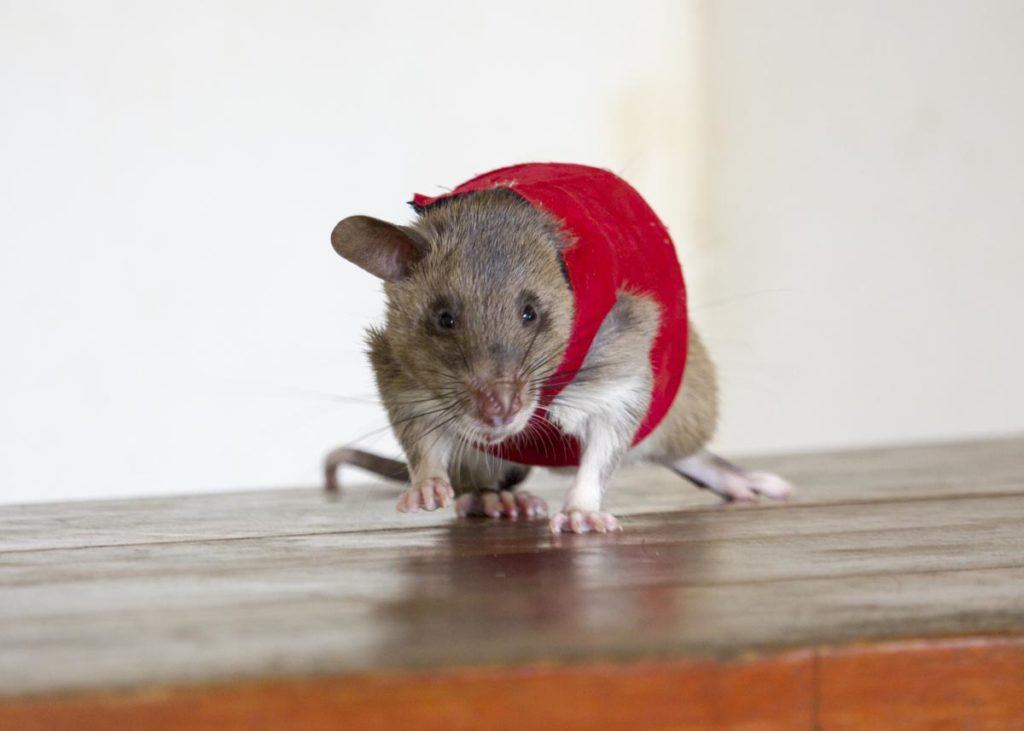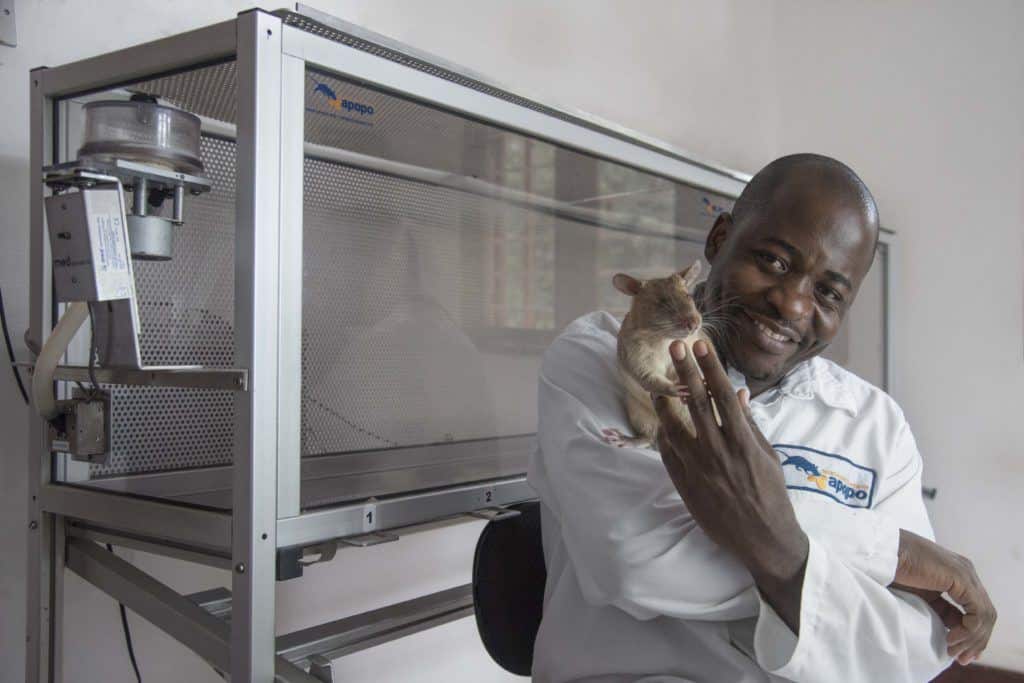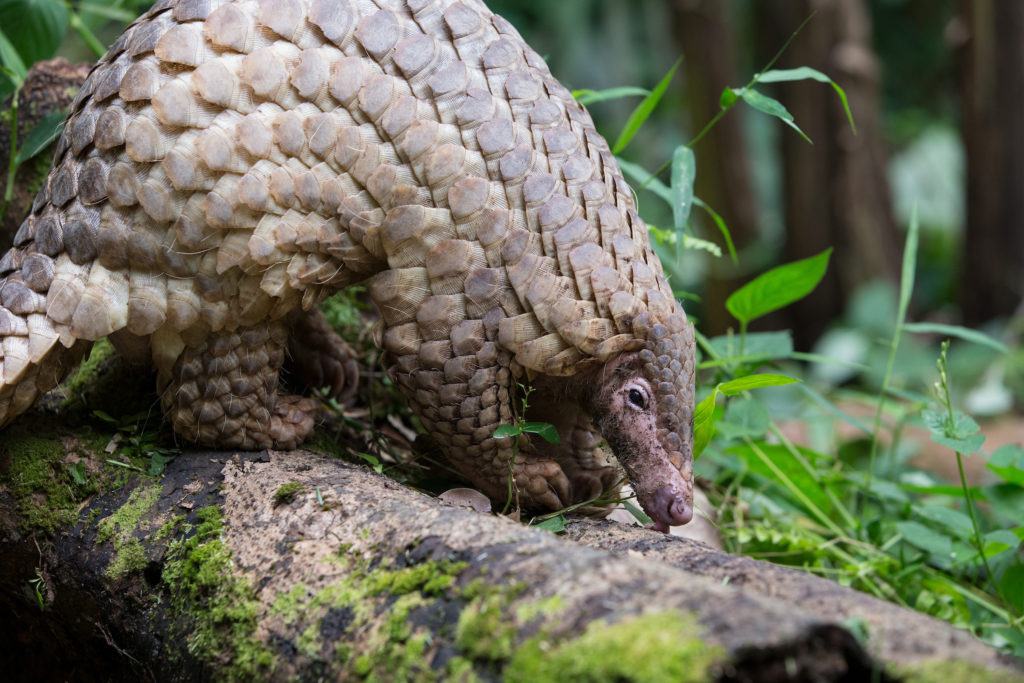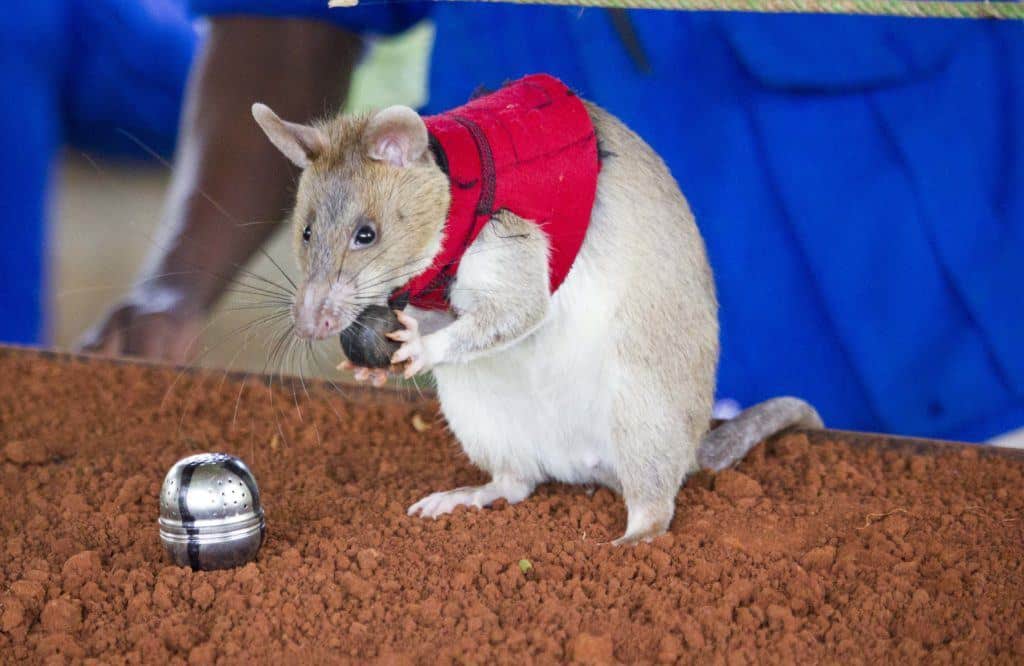Arwen’s whiskers fluttered vigorously as she gobbled down a mouthful of banana—her reward for a job well done. To accommodate her misshapen left ear, she was fitted with a new candy apple red vest and was now showing real promise in her training. Like all African giant pouched rats, Arwen’s highly developed sense of smell can rival even a bloodhound; she is learning to use her powerful nose to distinguish specific scents. If successful, Arwen will join a new cohort of APOPO’s aptly named “HeroRATs,” who are using their olfactory super powers to fight wildlife crime.
The title of HeroRAT is no exaggeration. For years, these animals have saved lives by detecting landmines and tuberculosis. By distinguishing the scent of TNT from metal, HeroRATs zero in on buried landmines in a fraction of the time it takes metal detectors, and they are too light to trigger detonations. Similarly, HeroRATs are trained to detect tuberculosis in patient sputum samples dramatically faster than lab technicians, thus accelerating diagnoses and treatment. Now, the nonprofit APOPO is training HeroRATs to save endangered wildlife, in partnership with the Endangered Wildlife Trust (EWT). They are starting with pangolins, the world’s most trafficked mammals.
Each year, hundreds of thousands of pangolins are poached and trafficked for their meat and scales. Relentless poaching has not only put pangolins on the precipice of extinction, it threatens human health; researchers have evidence that suggests it was through pangolin consumption that COVID-19 transferred to people. Ending the wildlife crime that is decimating pangolins requires shutting down the trafficking networks that move pangolins into the black market.
If HeroRATs can detect smuggled pangolin parts, they can be deployed to shipping ports, airports, national parks, and along country borders to help thwart traffickers. Because HeroRATs are small and light, they can climb up high stacks of crates and maneuver between tight containers, covering far more ground than dogs, who have more commonly been deployed to sniff out contraband moving across borders.
APOPO is training ten HeroRATs, including Arwen, to explore shipping containers and alert their handler if they smell pangolin scales. The rats wear a special vest equipped with a small ball; when they smell pangolin, they pull on the ball, which flips a microswitch alerting the handler. The next step is to get the rats out of the lab and into the field.
In early 2020, the Pangolin Crisis Fund (PCF) made a grant to APOPO in partnership with the Endangered Wildlife Trust (EWT) to help advance this program towards real-world deployment, specifically in Tanzania’s ports including the Dar es-Salaam seaport—a major hub for wildlife products going from Africa to Asia. With PCF funding, EWT and APOPO have also been developing relationships with port authorities, to hopefully introduce the rats and acclimate them to these new environments.
Arwen and her fellow HeroRATs are getting more efficient at identifying wildlife products and APOPO is planning to deploy them to ports and parks in the next year. Early results from this program have been truly encouraging, and if any animal needs a hero right now, it’s the pangolin.





